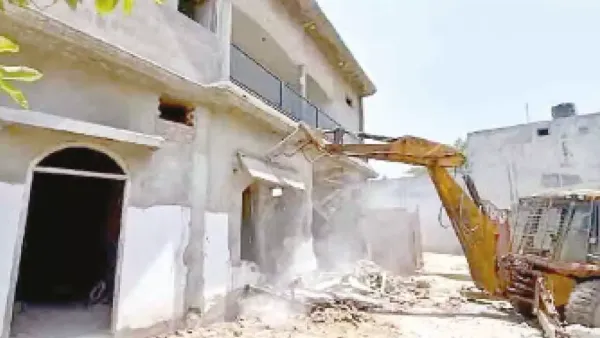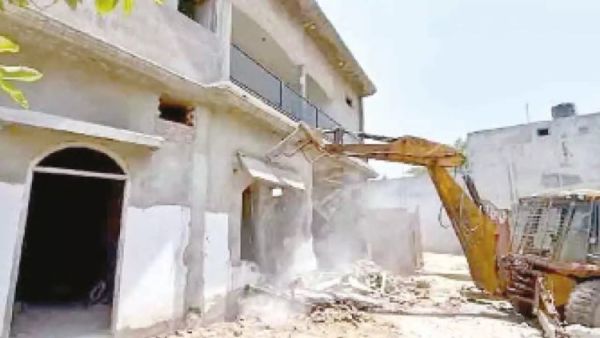
The Supreme Court ruled Tuesday that the municipal development administration must reimburse each harmed property owner Rs 10 lakh within six weeks for the “bulldozer demolition” of residential dwellings in Prayagraj, calling it “inhuman and illegal.”

Our conscience is shocked by the way the destruction was carried out. The appellants’ homes have been ruthlessly dismantled. A bench consisting of Justices Abhay S. Oka and Ujjal Bhuyan said, “There is something called right to shelter, due process of law.”
The bench emphasized the “rule of the law in the country” and said that the “high handed” method of the demolitions demonstrated insensitivity on the side of the authorities.
It also said that people’ residential buildings may not be destroyed in this way.
According to the Supreme Court, the Prayagraj Development Authority must keep in mind that the right to shelter is a fundamental component of Article 21 and that the rule of law is a fundamental component of the Constitution.
According to the top court, the administration used Section 27 of the UP Urban Planning and Development Act, 1973, to carry out the demolition.
The bench noted that on December 18, 2020, a showcause notice was issued and posted on the homes that same day. It was noted that there had been two efforts to serve the notice in person.
According to the court, a follow-up demolition order was also attached on January 8, 2021, but it was not sent via registered mail.
“The appellants had no opportunity to appeal under Section 27(2) of the Act because the first registered post communication was sent on March 1, 2021, received on March 6, 2021, and the demolition was completed the following day,” the court said.
“The purpose of the proviso to Section 27(1) is to give a reasonable opportunity to show cause before demolition,” the top court said. This isn’t how a realistic chance is given.
The court said that before using affixture, sincere attempts should be taken to serve notice in person in accordance with the regulations.
“It is clear that sincere attempts must be taken to effect service in person where the provision refers to a person who cannot be located. It cannot be that the person assigned to serve notice goes to the residence and attaches it after discovering that the individual in question is unavailable on that particular day,” the statement said.
The decision said that providing a personal service was “obvious that repeated efforts have to be made.” There are just two choices if those attempts don’t work. Affixing comes first, followed by mailing by registered mail, the bench continued.
The petitioners’ attorney requested damages at the hearing, claiming that his clients were unable to pay for the reconstruction of their houses.
Attorney General R Venkataramani objected to the funding award, claiming that the affected persons had other lodgings and that illegality could not be made up for.
However, the court rejected the claim, stating that it was a “justification for denying due process.”
As a result, they have lost their homes. Affixing the notification at random is not enough; you need to really try to serve it.
This affixing company needs to shut down. It said that the only reason they are hurting is because they lack money.
The Uttar Pradesh government was earlier criticized by the supreme court for its demolition action in Prayagraj, which it said conveyed a “shocking and wrong signal” since it did not follow the proper legal process.